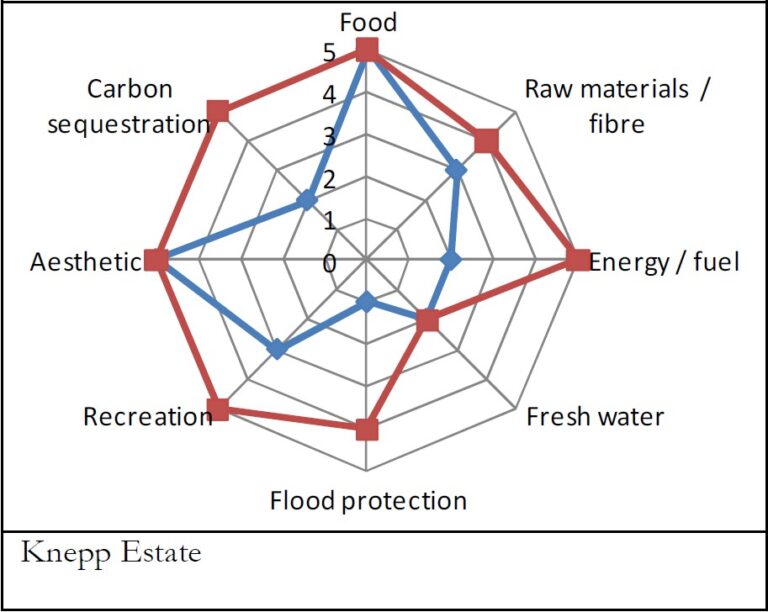ecosystem services
The recovery of our soils and wetlands and the regeneration of our shrubs and trees means we’ve gone from being a significant carbon emitter under intensive farming to a powerful carbon sink under rewilding.
Methane emitted from our livestock is likely to be much lower than in intensive systems given their natural diet and these emissions should be viewed holistically, as part of the natural carbon cycle of our functioning ecosystem.
Data analysis carried out by Queen Mary University of London has shown that in 18 years the Southern Block has gained 1.3million square metres of scrub. About a third of the area that was previously under arable is now scrub. This scrub, as well as other habitat gained from the rewilding process, provides other vital ecosystem services for the public good. We have made huge gains in terms of soil restoration, carbon sequestration, water storage and water purification, flood mitigation, air purification, habitat for rare species and other wildlife – including pollinating insects, and space for nature, all of which benefit to human mental and physical health.
In 2012, a report by DEFRA quantifying eight key ‘ecosystem services’ showed that Knepp’s scores had improved dramatically from the previous regime of intensive farming (the blue line in the spidergram below). (‘Fresh water’ is concerned with reservoirs etc for water storage, which we do not have on Knepp, so this score remained the same).

As our ecosystem continues to recover, becoming ever more complex and dynamic, the services it provides (often now referred to as ‘public goods’) continue to grow. Long–term studies looking into carbon, water storage, soil health and biodiversity at Knepp provide evidence to show how rewilding can provide fundamental improvements to the environment – our life-support system.